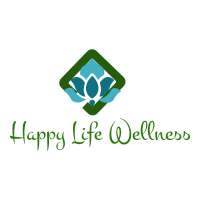For many people, a vegetarian is the way to go. Plant-based diets are in vogue right now, and for good reason! Plant-based diets have been shown to reduce the risk of chronic diseases such as heart disease, diabetes and cancer.
They also have a positive effect on the environment by reducing greenhouse gas emissions from livestock farming. But there’s one question that never seems to get answered: how do you get enough protein? Well, don’t worry – we’ve got you covered with this list of five plants that are packed with protein!
Table of Contents
Plant based foods
So what if I told you there are plant-based, protein-rich foods? That there is no such thing as a vegan who lacks “adequate protein” and can only eat bland veggies?
While plant based diets do not exclude meat, they prioritize plants over other ingredients. This is a great way for people to expand their cooking repertoire or experiment with delicious new recipes like bulletproof coffee.
A plant-based food
A vegetarian is a diet that is comprised primarily of foods from plants, and it’s largely agreed by experts to be the best way to eat to extend one’s longevity and avoid degenerative diseases.
Some people believe that a vegetariandiet doesn’t provide adequate protein, when in reality meat sources are more inflammatory and difficult to digest than their plant counterparts.
Here are five vegetarianfoods that have more protein than meat:
Vegetarians are always looking for more protein as an important part of their diet. While beans and nuts seem like great options, even vegetables have plenty to offer in this area. A single serving of black beans can contain 15 grams of protein- about the same amount contained by two chicken drumsticks, and a one cup serving could make healthy refried bean
Eating soy in its organic form, which is only available as whole beans or organic flour to avoid GMOs, provides 18 grams of protein in a single 1-cup serving. This value relates closely with that of a hamburger patty. Although you may hear erroneous information about the safety of soy and how it can cause hormonal imbalances or even cancer, this just isn’t true at all; there’s evidence that disputes these ideas.
3 Almonds:
Almonds and almond butter contain 12 grams of protein in a single serving of 1/4 cup, which is as much as a glass of milk. A single tablespoon of almond butter contains the same amount of protein found in 2 tablespoons of peanut butter..
4 Oatmeal:
Oatmeal provides 6 grams of protein in a single serving, which is equal to a single egg. If you eat 1 cup of oatmeal, that doubles the amount of protein to 12 g. You should also add nut butter and soy milk on top (as I do), which increases your intake to over 20 g.
5 Hemp Seeds:
Hemp seeds contain more protein per serving than a chicken breast, and Hemp contains all the amino acids needed as a complete protein. Hemp seed can be added to foods such as oatmeal, salads and smoothies for an excellent nutrient boost!
What happens to your body when you go plant based?
A plant-based diets can be a very healthy option, especially for those who want to see the benefits of this type of meal plan. Plant-based diets have been proven to lower blood pressure, clear acne, reduce heart failure risk by nearly half and stabilize blood sugar levels.
Are potatoes plant based?
As we eat less animal products, it becomes more and more important to find replacement sources of protein. Luckily, there are many plant-based foods that have not only the right amino acid profile but are also nutrient rich. Potatoes are a great pantry staple because they last long in storage when stored correctly and can be used in so many dishes for
Will I lose weight on a plant-based diets?
If you’re on a plant-based diets and trying to lose weight, well-planned meals can help. Aim for 40 grams of fiber a day for good digestive health, which is (relatively) easy with some thought put into your food choices: vegetables, fruits, whole grains and beans should be the center of your plate.
What happens when you stop eating meat for a month?
If you try not to eat meat for a month, then your body should feel better. This is because plant-based food has anti-inflammatory properties. Plant-based food is rich in fiber and antioxidants, and low in toxins and saturated fats.
what is plant based eating
A plant-based eating pattern means that you only eat foods from plants. You can also eat meat and dairy products, but not as much as you would if you ate other things.
Can you eat eggs on a plant based diets?
Eggs are a good food for people who like to eat plants. They give you the vitamins your plant food has, and can help you get more fat.
How do you start a plant based food for beginners?
8 ways to get started with a plant-based food
- Eat lots of vegetables. This is good for you.
- Think about meat in a different way. …
- Fats are good for you. Choose the ones with Omega 3 which is found in fish and nuts..
- Cook a vegetarian meal one night a week. Include grains for breakfast..
- You should eat vegetables.. …
- Build a meal around a salad. Eat fruit with your lunch.
- Instead of having a sweet food like cake or pie for dessert, eat some fruit.
What is a plant based breakfast?
12 Plant Based Breakfast Ideas
- This is a vegan shake with chocolate and peanut butter..
- You can make chia seed pudding without dairy..
- Oil-free home fries are a delicious way to make something that is easy to make..
- A vegan green smoothie is made of: Vegetables,Fruit (such as banana, strawberry, or grapefruit) Liquid (such as juice or water).
- Plant-based oatmeal muffins.
- I made toast with beans..
- This is a recipe for making breakfast sandwiches that are vegetarian.
- This is a breakfast that has blueberries and lemon in it. You can add some milk and then cook it in the oven.
Books to read before going vegan
The Forks Over Knives Plan: How to Transition to the Life-Saving, Whole-Food, Plant-Based diet

A whole food, plant-based diet is one of the healthiest ways to fuel your body. The time it takes to transition varies based on individual needs or circumstances and can be anywhere between 1 month (or less) up until 2 years of gradually adopting these changes in your life.
Related Products on Amazon We Think You May Like:
Hlwellness is a participant in the Amazon Services LLC Associates Program, an affiliate advertising program designed to provide a means for us to earn fees by linking to Amazon.com and affiliated sites.






Hlwellness is a participant in the Amazon Services LLC Associates Program, an affiliate advertising program designed to provide a means for us to earn fees by linking to Amazon.com and affiliated sites.







